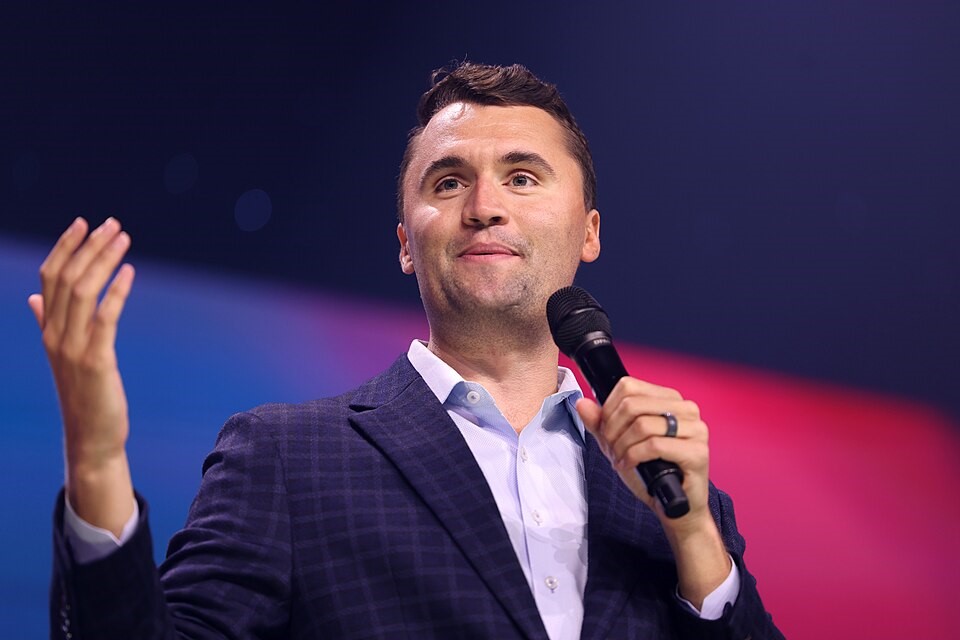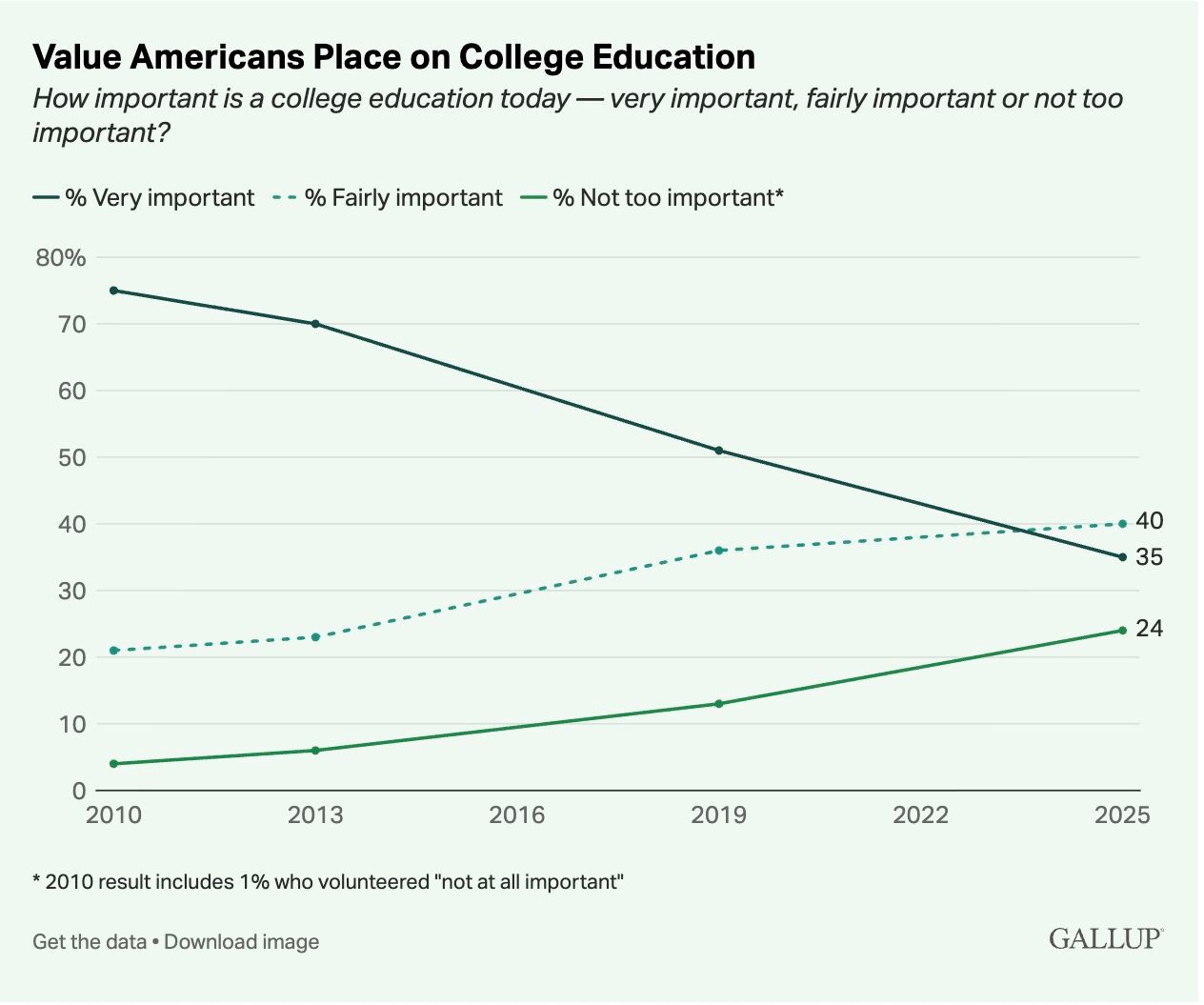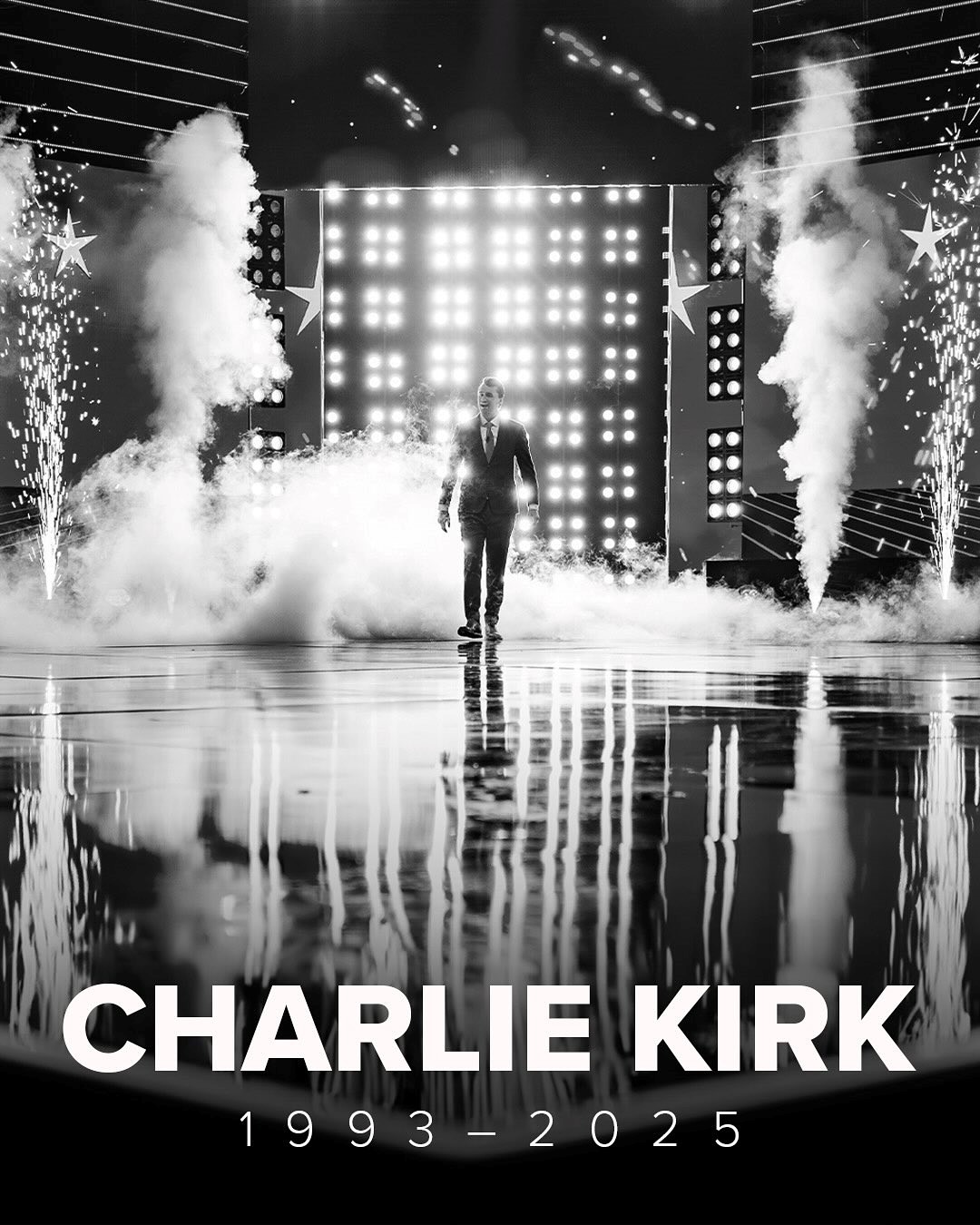Ideals are peaceful. History is violent.
—Don ‘Wardaddy’ Collier
The moment the bullet struck, America convulsed from the impact.
Charlie Kirk — perhaps the most brilliant conservative debater of his generation — was murdered onstage at a Utah college campus.
Thousands saw the traumatic moment happen live.
Millions have since replayed the footage.
You might argue that this is a pivotal moment for young Republicans. Gen Z, in particular, is experiencing a shattering of their political innocence. There’s no going back now.
The grief is raw. The anger is fiery. And we are left with a provocative question: what comes next?

Charlie Kirk speaking in Tampa, Florida in July 2025. Source: Gage Skidmore / Wikimedia Commons
I believe that history can serve as our guide here. From Abraham Lincoln to John F. Kennedy. From Martin Luther King Jr. to Harvey Milk. And now…of course…Charlie Kirk.
- No nation has suffered more high-profile assassinations than the United States of America. This gruesome trend has prevailed over 160 years. And what was true in 1865 still holds true in 2025.
- The perpetrator of such a crime is almost always a fanatic. Motivated by a toxic mix of narcissism and ideology. Making his feelings known in explosive fashion by murdering a public figure.
- By doing so, the assassin seizes the media spotlight. Carving out his own 15 minutes of fame. Gaining primetime notoriety.
Is this sick? Yes, of course it is.
- But let’s face it: this is an illness that has always been there, circulating in the bloodstream of America. This is a virus that has an ebb and a flow, depending on the era, depending on the decade. But here’s what I’ve noticed: the virus tends to flare up most noticeably in times of political division and upheaval.
- I once talked about how the 1970s was the golden age of terror, as well as the golden age of the serial killer. That was a time of existential angst. People shedding blood simply because they found themselves in a lousy mood.
- So, in the 2020s, are we experiencing a similar cycle right now? Are we going through a similar dark period? Well, if Charlie Kirk’s assassination feels particularly distressing, it’s because we are living in the age of 24/7 streaming media. Emotions are being exchanged and transmitted at the speed of light. Therefore, this crime doesn’t just feel real. It feels hyperreal. More real than real.
To understand why it matters so much, we must first recall what Charlie Kirk’s life was all about.
- Kirk was not a conventional politician. He was not even a conventional pundit. He was, first and foremost, an organiser of young people.
- His journey to prominence started in 2012. That’s when he launched his organisation, Turning Point USA. What is remarkable is that Kirk was only 18 at the time — but already, he was displaying a foresight way beyond his years.
- You have to remember: back then, we were at the midpoint of Barack Obama’s presidency. America was at peak wokeness. Progressive values appeared to be winning.
- The conventional wisdom was that older people tended to lean conservative, while younger people tended to lean liberal. This assumption was so prevalent that even the leaders on the Washington Beltway seemed to accept it as a given.
- But then along came Charlie Kirk, a Christian rebel who dared to confront and demolish that stereotype. With astonishing speed, he created a grassroots movement that defied the odds, mobilising millions of young Americans to push back against progressive attitudes.
What is extraordinary is that Kirk waged his guerrilla campaign directly in college campuses, the heartland of liberal values. Like an earthquake, he shook up left-leaning institutions where conservatism was often treated as a taboo.
- This was a game changer, and Charlie Kirk flipped the script in dramatic fashion. From abortion to transgenderism; from race relations to border control; he pushed hard and never backed down from a passionate debate.
- Watch his videos closely. You can see that Kirk’s message was always consistent. He believed that Christianity should be embraced. He believed that nationalism should be celebrated. And he believed that personal responsibility and financial independence should be the ideal.
- You will notice that Kirk talked a lot about objective reality, as well as objective morality. This was his benchmark for American greatness. And he absolutely held firm that the fabric of society depended on this benchmark being upheld as sacred.
- Certainly, his muscular defence of traditional values would offend people. His critics called his messaging bigoted, hateful, incendiary. It’s not hard to understand why. He had punctured their ‘safe spaces’. He had overturned their progressive dogma. And, in doing so, he gained a legion of enemies.
- However, by that same measure, he also secured a legion of loyal fans. To them, Kirk was an icon, a hero, a patriot. Indeed, he acted as a champion for young conservatives who often felt alienated by the left-leaning cultural elite on college campuses. Kirk gave these underdogs a voice and a purpose — and in return, they gave him their fierce unflinching support.

Source: Gallup
So, what has been the long-term impact of Charlie Kirk’s activism? Well, I want to give you a sense of the big picture here.
- Just take a look at this historical record of opinion polls done by Gallup. The numbers here don’t lie. In 2010, 75% of young Americans believed that going to college was very important. However, by 2025, that number has slumped to only 35%.
- This is staggering, isn’t it? Clearly, this reflects a seismic shift in attitudes among young people. They are abandoning liberal dogma. They are embracing conservative beliefs. The growing hunger for academic change is undeniable.

Source: Charlie Kirk / Facebook
In life, Charlie Kirk was a monumental activist, transforming the educational landscape. And in death, it’s possible that his legacy will transcend boundaries and stretch even further.
- His widow, Erika Kirk, has said: ‘He never gave up. One of his mottos was never surrender. So I want to tell that we will never surrender. The campus tour will continue. There will be even more tours in the years ahead to come. In a world filled with chaos, doubt and uncertainty, my husband’s voice will remain.’
Indeed, history has shown us that bullets may kill a man, but they cannot kill a movement.
- Lincoln fell, yet the Union endured. Kennedy fell, yet the dream of space exploration moved ahead. King fell, yet the march toward civil rights advanced. And now Kirk has fallen, but his vision of Christian nationalism carries on.
- Perhaps, in this moment of darkness, we will come to understand a deeper truth: that martyrs do not choose their destiny, but destiny chooses them. And through their sacrifice, other young activists might rise higher, push harder, and carry the torch forward.
- Perhaps Charlie Kirk’s death is a test. A test of will. A test of faith. A test of whether America still has the courage to believe in its founding ideals even when those ideals come under fire.
- From the ashes of sacrifice, we will find that movements are reborn, and ideals are forged anew. The end of every cycle only opens the door to a fresh one.
- Tragedy is fleeting, but legacy is forever.
Regards,
John Ling
Analyst, Wealth Morning
(This article is the author’s personal opinion and commentary only. It is general in nature and should not be construed as any financial or investment advice. Wealth Morning offers Managed Account Services for Wholesale or Eligible investors as defined in the Financial Markets Conduct Act 2013.)





John is the Chief Investment Officer at Wealth Morning. His responsibilities include trading, client service, and compliance. He is an experienced investor and portfolio manager, trading both on his own account and assisting with high net-worth clients. In addition to contributing financial and geopolitical articles to this site, John is a bestselling author in his own right. His international thrillers have appeared on the USA Today and Amazon bestseller lists.